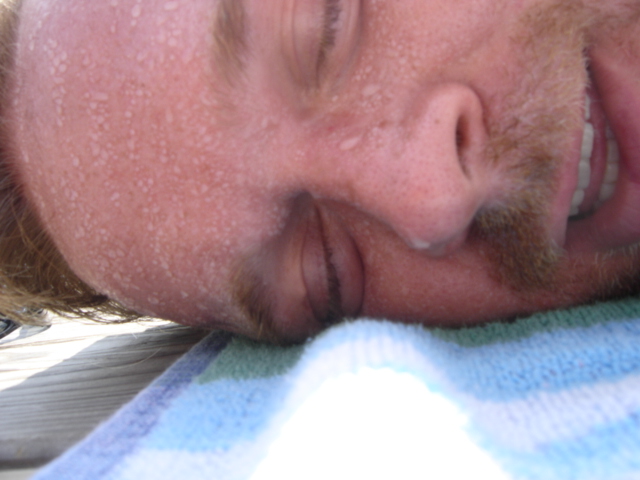Menopause
One of the most common reasons for women to wake up in a cold sweat is due to the hormonal roller coaster ride known as menopause. Women usually begin menopause around the age of 50, but women can begin at a younger age. Not all women who go through menopause will get cold sweats, but it is considered a usual symptom.
There is also a state called perimenopause, which happens in the years before menopause fully flowers. According to the Mayo Clinic, this can happen for five years or more in a woman, beginning in her late thirties or forties. She will still have regular periods, but can also begin having symptoms of menopause, such as cold sweats. Other symptoms include hot flashes, insomnia and vaginal dryness, even when aroused.
Infection
Have you recently had surgery, injection, cut or scratch? Check to see that it is healing well. If it is swollen, red, weeping pus or if you are running a fever, the chances are high that the night sweats are caused by a bacterial infection that entered your body, such as a MRSA staph infection. Cold sweats are one way the body combats the fever and tries to get the body back to normal. Contact your doctor right away.
Even if you hadn't had a recent skin opening and you're getting cold sweats, call your doctor. Unless you are a woman that has already been diagnosed with perimenopause or menopause, night sweats are not a normal bodily function. Cold night sweats could be the sign of a kidney infection. This is usually accompanied by pus, blood or a peculiar smell to your urine.
Type 1 Diabetes
Another cause of cold sweats is the body's reaction to a sudden drop in blood sugar that can happen to some people with Type 1 diabetes. This is they type of diabetes that a person is born with and does not develop due to dietary indiscretions. The American Diabetes Association also notes that sweating can be a symptom of hypoglycemia (low blood sugar).
However, if you have been diagnosed with Type 2 diabetes and experience a cold night sweat, be sure to tell your doctor. If the night sweat is accompanied by other symptoms of a plunge in blood sugar, get an ambulance. Implement any emergency measures to raise your blood sugar that your doctor should have already drilled into you.
Other symptoms of hypoglycemia include confusion, headaches, nausea, vomiting, loss of coordination, vision problems, sudden extreme mood changes and falling unconscious.
References:
Mayo Clinic. “Night Sweats: Causes.” http://www.mayoclinic.com/health/night-sweats/MY00576/DSECTION=causes
Health Communities.com (used to be called the Urology Channel). “Kidney Infection Signs and Symptoms,
Complications, Diagnosis.” http://www.urologychannel.com/kidney-infection/symptoms-diagnosis.shtml
The American
Diabetes Association. “Hypoglycemia (Low blood glucose).” http://www.diabetes.org/living-with-diabetes/treatment-and-care/blood-glucose-control/hypoglycemia-low-blood.html
Author’s mother
also had cold night sweats right before she was diagnosed with MRSA staph
infection

No comments:
Post a Comment